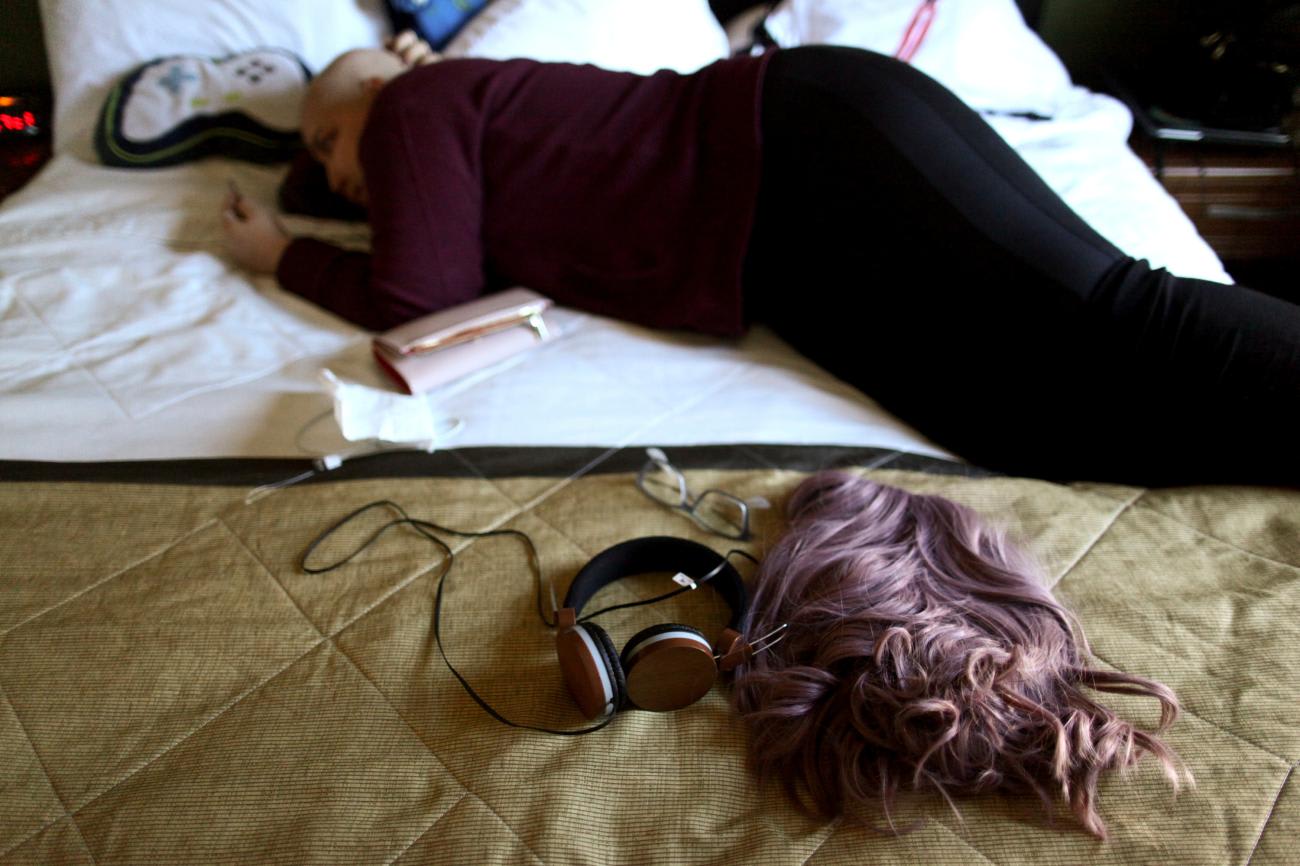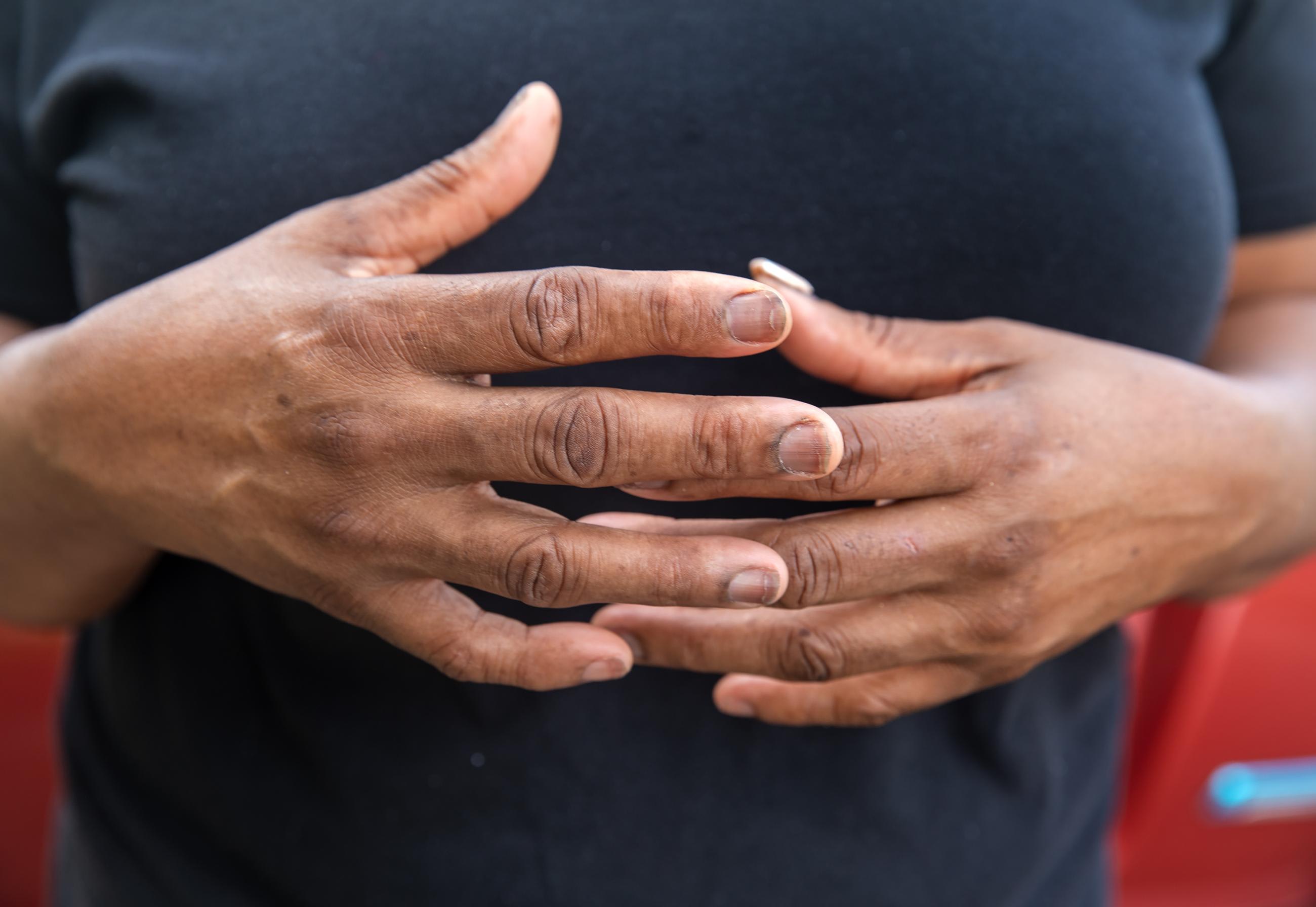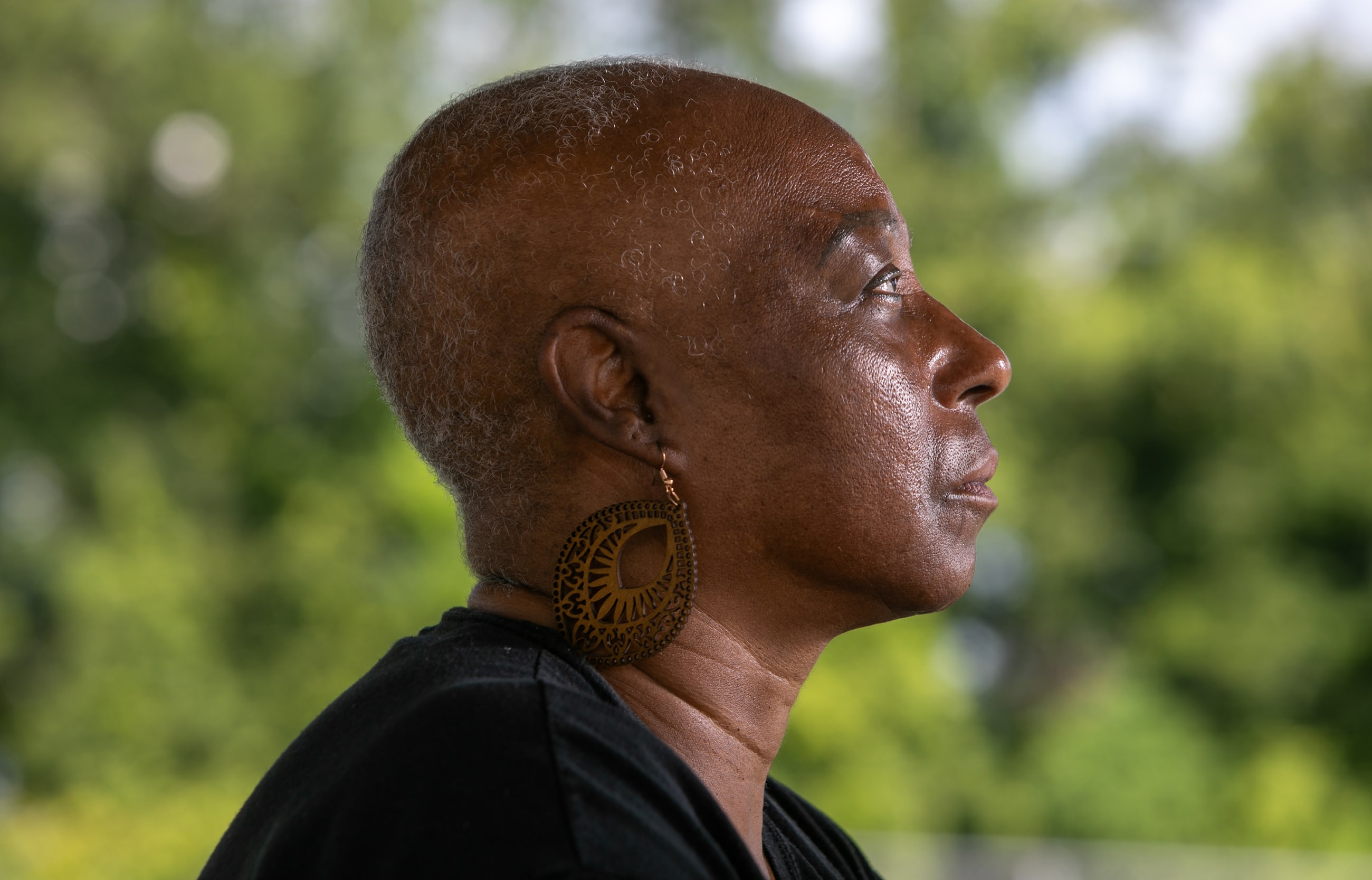As a resident of St. James Parish in Louisiana's notorious "Cancer Alley," Veronica Jones witnessed many friends and family members receive diagnoses as industrial pollution plagues their community. But she was still surprised, at age 58, when her doctor said she had an aggressive breast cancer, which they caught last year during a regular screening. "I didn't even have a lump," she said. "So I was very thankful for the mammogram that found it."
Jones, a single mother of four and a full-time caretaker for an adult daughter with cerebral palsy, relied on Medicaid to cover the costs of surgery, chemotherapy, radiation, and other essential care and support. "Without Medicaid, literally, I think I'd be dead," she said. "Because of it, I no longer have cancer."
Soon, however, Jones and millions of others like her could lose access to that life-saving insurance program. On Tuesday, the Senate passed a budget reconciliation bill that according to the Center on Budget and Policy Priorities (CBPP) and Congressional Budget Office (CBO) would eliminate more than $1 trillion from Medicaid—the largest ever cuts to the nearly 60-year-old program. A version of the One Big Beautiful Bill Act passed in the House last month, outlining more than $800 billion in Medicaid cuts.
If the House cuts became law, 7.8 million people currently on Medicaid could become uninsured, according to the CBPP and CBO. Initial assessments of the Senate proposal vary, but the CBPP estimates that 10.6 million could lose access to Medicaid over the next decade if states opt to drop expansion due to the massive funding cuts. The Democratic arm of the Joint Economic Committee also said that approximately 20 million could lose Medicaid coverage.
1 in 10 adults and 1 in 3 children with a history of cancer have Medicaid coverage
As a result, doctors expect to see more patients presenting with late stage cancer, a surge in the number of people declaring bankruptcy because of the cost of cancer care, and "an increase in deaths across the country," said Andrew Loehrer, a surgical oncologist and associate professor of surgery at Dartmouth-Hitchcock Medical Center in New Hampshire who studies health services with a focus on marginalized and oppressed populations.
Health insurance is one of the most significant predictors in surviving a cancer diagnosis, in part because cancer care is unaffordable to most people. "Depending on the diagnosis, most cancer patients are getting four to 16 treatments of chemotherapy, and it can easily be upward of $50,000 a treatment," said Kristy Case, a licensed clinical social worker certified in oncology at a cancer center in New Jersey. "No one can reasonable pay for their treatment."
People with health insurance are more likely to go for regular check-ups and screenings that can catch cancer early, and more likely to adhere to a treatment plan, added Elizabeth Darnall, senior director of federal advocacy at the American Cancer Society Cancer Action Network, a nonprofit advocacy affiliate that lobbies to enact laws and policies to make cancer a national priority.
Medicaid work requirements could be yet another obstacle, as many people with cancer are physically unable to hold or apply for jobs. The new bill gives an exemption for people with "serious and complex medical conditions," Darnall said, but it's unclear whether that exemption covers all or just some cancers, or how patients will have to prove that they qualify. In general, too, work requirements for Medicaid are associated with significant losses in coverage. In the first six months after Arkansas enacted a work requirement in 2018, nearly 17,000 adults were removed from Medicaid—despite more than 95% of them appearing to meet the work requirement or qualify for exemption.
States are constitutionally required to balance their budgets, so the federal cuts to Medicaid will cause state-level lawmakers to either slash optional benefits, such as prescription drugs, or take coverage away from large groups of people—or both. Among those who lose Medicaid, the vast majority would not be able to afford another health insurance plan. Even if they retain Medicaid, many would not be able to afford the steep price of prescription drugs, if that benefit is taken away, or higher co-pays lawmakers are proposing for doctor's visits and other medical care.

"There're so many people in Louisiana just like me who can't even afford private insurance," Jones said. "We can't survive without Medicaid."
Although these changes could affect all people on Medicaid, the sickest—including cancer patients—will suffer the most because they are the ones who most urgently require access to care, said Brian Connell, vice president of federal affairs at the Leukemia and Lymphoma Society, a global nonprofit organization focused on fighting blood cancers.
According to the American Cancer Society, 1 in 10 adults and 1 in 3 children with a history of cancer have Medicaid coverage. But whether lawmakers are aware of how the bill would negatively affect these groups is unclear, Connell said. Congress has not held any hearings that would give experts an opportunity to share ramifications of the bill, and the decision-making process has seemed rushed, he said. "There's a real lack of understanding or appreciation of [the impacts on cancer patients] on Capitol Hill right now."
Even without the historic cuts to federal funding, some states have taken steps to limit coverage for their citizens. If the bill passes, these strategies could be replicated by other states looking to close the gap in federal funding. A few states, for example, have set impossibly low income requirements. Alabama Medicaid requires parents enrolling in coverage for a family of three to make less than $4,800 per year [PDF], while Mississippi Medicaid requires such families to earn less than $7,230 per year.
Mississippi has also proposed catch-22 work requirements, Connell said, that would require Medicaid enrollees to work a number of hours that would provide a level of income that disqualifies them for Medicaid. States are also debating new barriers for entry, including lock-out periods proposed by Idaho, and, in West Virginia, a ban on pre-filled renewal forms meant to help individuals already known to the state with complicated paperwork.
The new bill would likewise add more paperwork and fees that will make it harder for people who qualify for Medicaid to actually access the program. "They're creating an enormous mountain of red tape that patients and caregivers would have to navigate if they want to keep their health coverage," Connell said. Even as paperwork burdens are increasing, Loehrer added, the Donald Trump administration has laid off hundreds of employees at the Centers for Medicare and Medicaid Services, "decreasing the number of people who can help patients go through the paperwork."
The new bill requires states, for example, to confirm eligibility for enrollees every six months rather than the usual 12 months currently required. More frequent check-ins could be a serious obstacle for some Medicaid recipients. People with few resources tend to have unstable housing, Case said, meaning that it's easier for mail to slip through the cracks. In the last six months especially, Case said, she has also heard from an increasing number of patients that they never received a notification to renew their Medicaid certification. "They come in for a treatment and we find out they don't have insurance," she said. "That can delay them for weeks for chemotherapy or surgery."
Cancer patients who live in rural areas will suffer disproportionate impacts as a result of the cuts. Rural residents are already more likely to die prematurely of cancer than their urban counterparts, and, according to the American Cancer Society, around 20% of rural individuals ages 18 to 64 with a history of cancer are enrolled in Medicaid [PDF]. Across the country, nearly half of rural hospitals have negative operating margins. Almost 200 have closed since 2010, and another 400 are vulnerable to closure. To keep their doors open, some have discontinued essential services, including chemotherapy. States where Medicaid has expanded, however, have suffered fewer hospital closures and seen significantly improved rates of early-stage diagnoses and survival for cancer patients.
However, as more rural residents lose their coverage, those gains will likely be lost. Uninsured patients may increase the amount of uncompensated care costs to hospitals in their areas—creating even greater financial strain on those facilities and causing "higher costs for everyone in the system," Carrie Cochran-McClain, chief policy officer at the National Rural Health Association, said on a virtual press call. In the worst circumstances, the trickle-down effect of uncompensated care costs might force rural facilities to eliminate services or close altogether. When this happens, everyone in the community suffers regardless of the type of insurance coverage they have, Cochran-McClain said.
Jones, who is still undergoing follow-up care for breast cancer, said she is "very scared" for the future. She worries about not being able to see her six grandchildren grow up if the cancer comes back and she cannot access the care she needs. She said she has seen Medicaid help multiple people survive that diagnosis, and for those that did not, she has seen it support the care they needed to die with dignity.
"Are they just going to let me suffer while I'm dying?" she said. "I hope and pray they don't take Medicaid. Our families, our communities, all of us—we need it."













